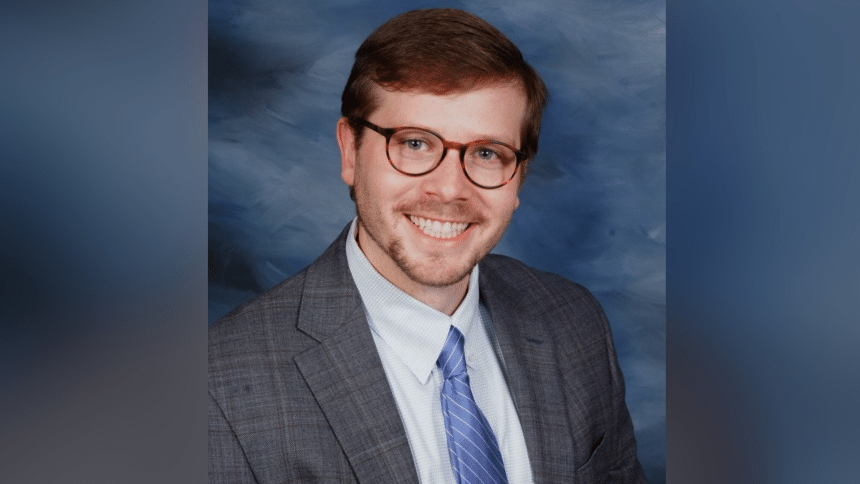America’s 50 states have been described as laboratories for different policies. The late Supreme Court Justice Louis Brandeis said almost one-hundred years ago that “[i]t is one of the happy incidents of the federal system that a single courageous State may, if its citizens choose, serve as a laboratory; and try novel social and economic experiments without risk to the rest of the country.” New State Ice Co. v. Liebmann, 285 U.S. 262, 311 (1932) (J., Brandeis dissenting).
Back in August, I wrote an article using a college football recruiting analogy to argue that Mississippi should combat its brain drain issues not just by keeping in-state graduates, but recruiting graduates and professionals from other states as well. I wanted to take that thought a step further, and see if any of the other 49 states has already served as a so-called “laboratory” by implementing these types of initiatives.
As the 2026 legislative session approaches, I have considered another football analogy; this time, an analogy attributed to professionals, in which they describe themselves as “copycats.” In 2014, the National Football League Head of Football Operations, Troy Vincent, said, “we are a copycat league, you bet. If Peyton (Manning) and Philip (Rivers) and (Drew) Brees and (Tom) Brady are doing something that’s good, then go out and try to do the same thing.” Unfortunately, I have aged enough to see each of those quarterbacks enter retirement. However, the copycat idea still remains relevant today; in football and in public policy.
What does that mean, exactly? It means that teams who reinvent new styles of play, and find success, can expect other teams to emulate that style to find their own success. For example; the spread offense, once considered to be something that would only find success in college football, has become mainstream in the past few years. Not too long ago, it seemed that Michael Vick was the only mobile quarterback; now, teams would readily admit that their offense is less dynamic if their quarterback doesn’t possess similar capabilities. Most recently, analytics-driven decision making has spread across the League, with more and more coaches embracing data analysis to dictate their fourth-down or two-point conversion attempts. Young, offensive-minded coaches are getting hired more often as head coaches after seeing the success that Sean McVay has had with the Rams. If an adopted strategy is successful with one team, then other teams don’t reinvent the wheel, they adopt those strategies to try and become victorious themselves.
Mississippi continues to lose many of its college graduates each year, with around half of graduates from Mississippi colleges and universities leaving the State.
Just as football teams study and copy successful strategies from other teams, Mississippi should study and copy proven policies from other states to attract and retain talent. If it works for the NFL, why shouldn’t Mississippi take that approach when attacking brain drain issues?
Here are proven plays from other states:
- Kansas Rural Opportunity Zones: In 2011, Kansas began the Rural Opportunity Zone Program. The Program offers state income tax credits and up to $15,000 in student loan repayment to individuals who move into the State, and establish residence in a rural area. Since the program began, over 1,600 people have participated, receiving a combined $13.3 million in assistance. For every 25 cents Kansas spends, it has gained $3.85 in economic value through property, sales and income taxes. In Mississippi, once the income tax is eventually phased out, only property and sales tax would generate comparable returns, but that is still revenue the state wouldn’t have otherwise. Participants in the Kansas program say that it helped them buy a home, and pay off student debt, which are two of the biggest financial hurdles that young Americans are facing today.
- Speaking of owning homes, Maryland SmartBuy 3.0 gives buyers an opportunity to purchase a home in Maryland while paying off student loans, providing up to 15% of a home’s purchase price for the borrower to pay off their outstanding student debt. While the program doesn’t target rural areas, it is a powerful tool for retaining and recruiting educated workers into the state. This is something Mississippi could replicate to help graduates stay and put down roots.
- South Dakota Rural Attorney Recruitment Program requires participating attorneys to set up a practice in a county of less than 10,000 or a municipality of less than 3,500, in exchange for payments amounting to $62,568 over five years. So far, 36 attorneys have participated in South Dakota’s program. This may not seem like a lot, but for our many rural counties and smaller towns, this could provide more choice in legal representation, without having to use an attorney whose office is an hour or more away.
- Maryland & New Mexico Teacher Incentives: As our education ratings continue to rise, we can work on recruiting educators to our State as well. In Maryland, the Teacher Relocation Incentive Grant offers up to $2,000 for out-of-state teachers who move and commit to teach in designated schools. In New Mexico, Gallup-McKinley County goes further, by offering signing bonuses as well as relocation stipends for teachers moving more than 300 miles.
In my earlier article, I highlighted the Shift South Program in Natchez. I am willing to be corrected here, if necessary, but my research shows no other Mississippi cities offering relocation incentives. Consider another state, Indiana:
At least ten Indiana cities are offering relocation incentives. Yes, Indiana has double the population of Mississippi, but eight of the ten cities mentioned in the article have populations of less than 80,000 (even one with less than 1,200!). If we are serious about rebuilding our workforce, then our cities, as well as our state legislature, should embrace the playbooks that are already available.
Similar incentive programs are being offered around the Country in cities such as Tulsa, Oklahoma, Cedar Rapids, Iowa, The Shoals, Alabama, and Cumberland, Maryland.
These incentives could be structured towards any profession where the state has a need. Recently, in Florida, Governor DeSantis announced that over 7,800 recruitment bonuses had been awarded to new law enforcement officers through the Florida Law Enforcement Recruitment Bonus Payment Program, which was launched in 2022. As of April 2025, more than 1,700 law enforcement officers from other states had relocated to Florida. Mississippi could only benefit from additional law enforcement, and in some communities, recruitment is becoming a necessity. Municipalities as well as the State should consider something similar.
The playbook revolves around incentives. Similar incentives could be extended to attract and recruit teachers, engineers, legal professionals, medical professionals, skilled tradespeople, and others. If we are serious about combatting our brain drain issues, we should follow these other examples; we have to be copycats.
Each of the NFL’s 32 teams serves a similar role in the League as each of our 50 states does in our nation. They serve as “laboratories” for football strategy, while states serve as “laboratories” for public policy. NFL teams win when they learn from others and execute proven plays. The same can be true for Mississippi. We don’t have to invent the next great idea, because these other states have already served as one of Justice Brandeis’s so-called “laboratories”, and provided the game script. We just have to embrace our title as “copycats”, and use the game plans that are working in other states.
The views expressed by contributors are their own and not the views of SuperTalk Mississippi Media.









